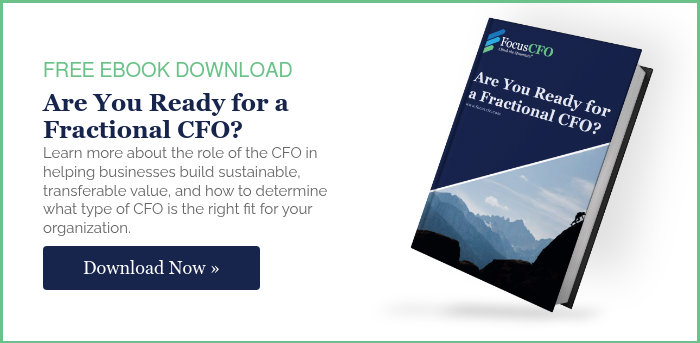Q: What else will a CFO do for the company?
He or she will peel back the onion, at which point you’ll most likely find that you’re not making money in one or more areas of your business. It’s not unusual for a company to be losing money and have no idea where it’s going.
A CFO will take a magnifying glass to your numbers and look at staffing and other expenses vs. revenue. When they examine things like manufacturing costs and sales cycles for products, it gives you the information you need to calculate an accurate ROI.
A CFO is also in charge of the financial future of a company while maintaining the past. The bills have to go out, invoices collected, cash managed, payroll paid, and new business ideas have to be vetted. A good CFO will analyze a new structure and how to model it.
The accuracy of the model is key. Calculating the revenue alone won’t give you accurate information. You must know the exact costs of doing business so that when you take on new business categories, they can be designed make a profit.
Q: Why can’t an accountant or bookkeeper do the job?
Most firms start out with a tax return person. A classic accountant who is in charge of the rear-view mirror. The only period of time being examined by an accountant is the past year, which is a bit late for decision-making, and only at the level of detail needed to satisfy the IRS. The accounting firm has only
your tax return in mind and classically assigns expenses to categories that are only appropriate for your tax return and not for running a business.
A regular bookkeeper records all transactions and perhaps even helps with sending invoices and collecting money. While the bookkeeper handles payroll and helps file tax findings, you’re not getting actionable, forward-looking information.
Q: Aren’t most CFOs overqualified for my business? How can I afford one?
The opportunity with so many baby boomers who want to remain in the workforce is enormous and includes a large community of highly experienced chief financial officers. The fractional CFO model is a win-win relationship. Your business benefits from their extensive experience, at a fraction of a full-time CFO. Average engagement is between one half or one full day per week. From the CFO’s perspective, they benefit from the intellectual challenge of working with several businesses simultaneously as well as having greater control over their work schedule.
At FocusCFO, we are passionate about small businesses. If you’d like to learn more about how we can help, let’s have a conversation.
Michael Stier is an Area President for FocusCFO based in Charlotte, NC.







